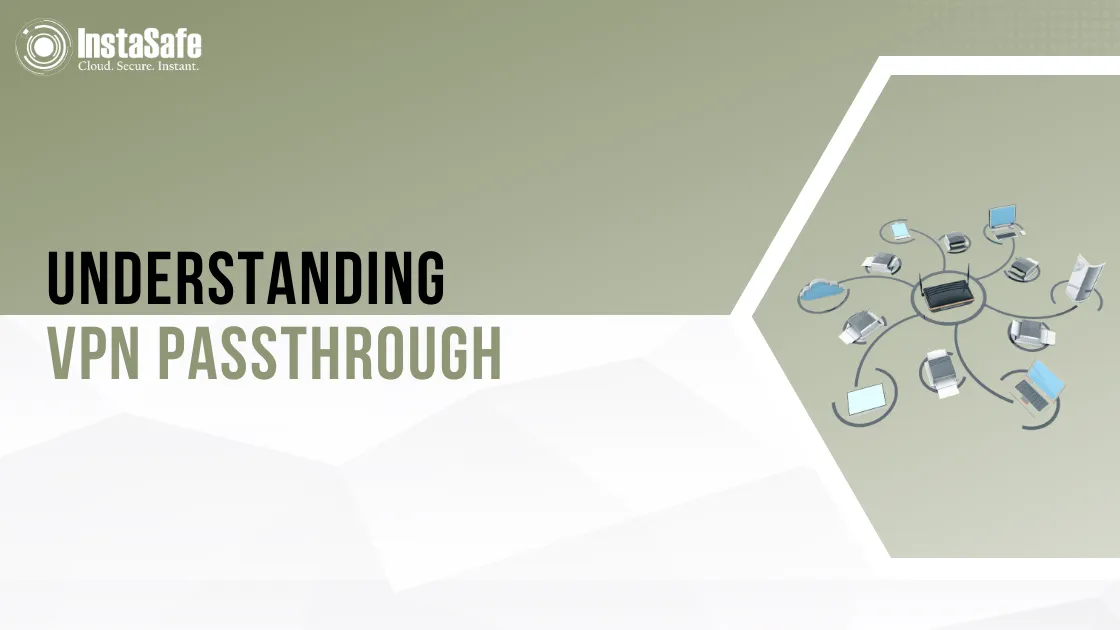What is a VPN Passthrough?

A Virtual Private Network(VPN) is a popular tool for securing internet connections and maintaining online sequestration. Still, occasionally, users need to connect to a VPN from within a network that employs a VPN passthrough point. In this blog post, we will explore what VPN passthrough is, how it works, and why it's important.
What is a VPN Passthrough?
A VPN passthrough is a point that allows a VPN connection to pass through a firewall or router. In other words, a VPN passthrough enables users to establish a VPN connection to a remote server while still behind a firewall or router. Without a VPN passthrough, the VPN business might be blocked by the firewall or router, which can help users to penetrate the internet or their company network.
How Does VPN Passthrough Work?
A VPN passthrough works by allowing the VPN business to pass through the firewall or router without being blocked. When a user establishes a VPN connection, the VPN customer on their device encapsulates and encrypts their internet business before transferring it to the remote VPN server. The remote VPN server also decrypts the business and sends it to its final destination. When a firewall or router detects VPN business, it can block the connection by dereliction because the business is translated and can not be audited. This is where VPN passthrough comes into play. With VPN passthrough, the firewall or router is configured to fete VPN business and allow it to pass through.
Why is VPN Passthrough Important?
VPN passthrough is important because it allows users to connect to a VPN server from behind a firewall or router, which can be essential for remote workers or those connecting to public Wi-Fi networks. For illustration, if you're working from a coffee shop and need to pierce your company's intranet, you'll need to use a VPN connection to secure your internet business. Still, the coffee shop's Wi-Fi network may have a firewall that blocks VPN business. In this case, a VPN pass-through would enable you to connect to the VPN server and access your company's network. VPNs are also essential for online sequestration and security, particularly when using public Wi-Fi networks. Public Wi-Fi networks are notoriously insecure and can leave users vulnerable to cyber attacks.
By using a VPN connection, all of your internet business is translated and routed through a secure connection, which can help cover your particular information and help prevent cyber attacks.
Types of VPN Passthrough
There are several types of VPN passthrough, including
PPTP Passthrough: PPTP(Point-to-Point Tunneling Protocol) is an aged VPN protocol that's still extensively used. PPTP passthrough is a point that allows PPTP business to pass through a firewall or router. PPTP passthrough is easy to configure and is supported by numerous routers and firewalls.
L2TP Passthrough: L2TP( Subcaste 2 Tunneling Protocol) is another popular VPN protocol that's generally used. L2TP passthrough is a point that allows L2TP business to pass through a firewall or router. L2TP passthrough is also easy to configure and is supported by numerous routers and firewalls.
IPSec Passthrough: IPSec( Internet Protocol Security) is an extensively used VPN protocol that's frequently used in enterprise networks. IPSec passthrough is a point that allows IPSec business to pass through a firewall or router. IPSec passthrough can be more complex to configure than PPTP or L2TP passthrough, but it's still extensively supported by routers and firewalls.
Limitations of VPN Passthrough
While VPN passthrough is a useful point, it does have some limitations. First, a VPN passthrough only allows one VPN connection to pass through the firewall or router at a time. This means that if multiple users need to connect.
Key Products
Multi Factor Authentication | Identity And Access Management | ZTNA | Zero Trust Application Access | Secure Enterprise Browser
Key Features
Single Sign On | Endpoint Security | Device Binding | Domain Joining | Always On VPN | Contextual Access | Clientless Remote Access | Device Posture Check
Key Solutions
VPN Alternatives | DevOps Security | Cloud Application Security | Secure Remote Access | VoIP Security
